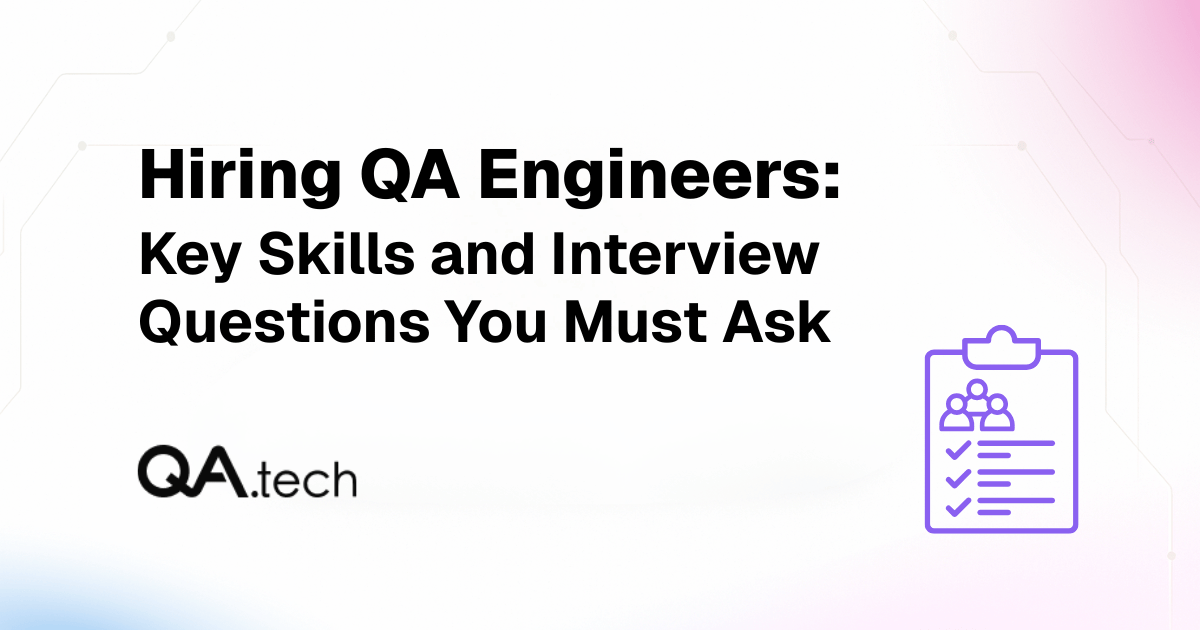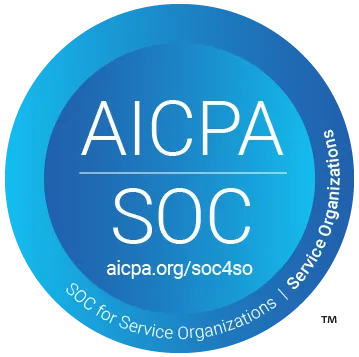Hiring QA Engineers: Key Skills and Interview Questions You Must Ask


Choosing the perfect QA engineers for your company can make or break your business. Back in 2012, a small glitch in Knight Capital’s code wiped out $440 million in less than an hour. That was over a decade ago, but the lesson still holds: even tiny mistakes can have massive consequences.
Today, software runs everything from online payments to hospital systems. The stakes are higher than ever, yet many companies still struggle to find reliable QA engineers. Hiring the right person can be tough, especially since demand for QA roles is set to climb by 25% between 2024 and 2034.
This article breaks it all down. For hiring managers, it explains what to look for in candidates. For QA engineers, it highlights the skills that top companies value most.
What Makes a Great QA Engineer?
Quality assurance has come a long way from simply filing bug reports. Today, QA engineers are involved in every stage of product development. They make sure teams build the right thing the right way.
A great QA engineer blends technical know-how, sharp analytical thinking, and people skills. They spot weak points early, help design features that are testable, and push for quality at every stage.
Why does this matter, tough? Because a seemingly tiny problem can cost you a lot of money, damage the trust within your team, or slow down an entire release cycle. Good QA engineers are the ones who stop those problems before they ever reach customers.
What Essential Skills Should You Look for When Hiring QA Engineers?
Here are the core skills you should look for when you're in the middle of hiring for this role.
QA Mindset
This is the foundation: a skilled QA engineer thinks about edge cases and “what ifs” by nature. As soon as they hear about a new feature, questions start popping up in their minds.
Take an e-commerce platform, for example. A QA engineer isn’t just checking whether the “Buy Now” button works. They’re testing what happens if the internet disconnects halfway through checkout, a customer applies multiple coupons at once, or thousands of shoppers hit the system during a holiday sale.
Reliable QA engineers strike a balance between technical work and strategic thinking. They can switch from writing test automation to working with product managers on acceptance criteria or coaching developers on testing practices. They’re curious about how and why a system works, and this curiosity leads them to spot issues others overlook.
Technical Skills
Even though AI and modern testing tools like Selenium have become a part of the landscape, it’s important for QA engineers to understand the fundamentals and apply them in the right context. A skilled engineer should know how to:
- Write clean automation scripts: Even if they are using AI to generate tests, engineers still need to understand the logic behind them. For example, automating regression tests for a login flow ensures new updates don’t break critical features.
- Test APIs thoroughly: With microservices everywhere, most systems communicate through APIs. A quality QA engineer knows how to validate not only paths, but error handling, response times, and edge cases.
- Work with CI/CD pipelines: Understanding deployment workflows helps QA engineers integrate automated tests directly into the pipeline. That way, bad code doesn’t get into production.
- Evaluate performance and security: QA engineers should look for issues like slow queries or vulnerabilities like weak authentication. For instance, testing how a banking app responds to multiple failed login attempts is just as important as testing successful logins.
The point isn’t tool expertise, it’s adaptability. Selenium might be popular now, but tomorrow it could be Playwright or something else.
Tools change. Strong fundamentals are forever.
Analytical Skills
Sharp QA engineers should think like detectives. Their job isn’t only to report what is broken; they also need to help other teams understand why it’s broken in the first place and how they can prevent it.
Due to the nature of their job, QA engineers often deal with incomplete or vague bug reports like “The page feels slow sometimes.” This is when they need to dig deeper. A detail-oriented QA engineer would measure page load times, trace the slowness to a specific API call, and compare them under different network speeds. This way, they would ensure their fixes target the root cause, not just the bug.
Soft Skills
Finally, QA engineers are the ones tasked with delivering tough news. Telling a product manager that a launch must be delayed isn’t easy, and let’s face it, the difference between confidence and conflict often comes down to communication.
That’s why you should look for people who can write bug reports that are clear, concise, and actionable and keep conversations constructive instead of confrontational. That way, they’ll be able to collaborate with developers, product managers, and designers to find solutions and ship better software faster.
How AI Is Changing QA
With the emergence of AI, repetitive manual tests are becoming increasingly obsolete. What’s been gaining importance, though, is the ability to oversee AI-generated tests, judge their accuracy, and work with AI tools for smarter automation. QA engineers should also be skilled at validating machine learning models, managing and cleaning test data, and building strategies that focus on risk rather than just coverage.
When interviewing prospective engineers, try to find out how how they would use AI tools in their work processes. This will give you clear insights into whether they rely blindly on AI or use it to enhance their work output.
After we’ve had some experience with AI, one thing is clear: it won’t replace QA engineers. Still, it will benefit those who understand context, strategy, and the business impact of testing.
Why Domain Knowledge Matters
Industry-specific experience is often what separates a good QA hire from a great one. A QA engineer in healthcare who understands patient safety requirements brings a level of insight that someone who has general skills only can’t match. The same applies in finance, where compliance and security standards are crucial.
Still, don’t rely solely on domain expertise when hiring. A strong candidate can acquire industry-specific knowledge on the job. Cultivating curiosity and problem-solving skills would take much longer.
Must-Ask Interview Questions
When interviewing QA candidates, it helps to mix things up with the types of questions you ask. That way, you will get you a better sense of how they solve problems, whether they are capable of thinking strategically, and if they can collaborate with others.
What Red Flags Should You Look Out For?
Some behaviors can undermine trust and collaboration within your team, creating friction in the process. Problems may arise when an engineer places too much emphasis on tools and proudly identifies as an “expert” in one without grasping fundamental testing principles. Things can be further exacerbated by weak communication, such as the inability to explain issues in a simple manner, write clear bug reports, or engage constructively with others.
Some candidates also see their role as a QA engineer as as a way to catch developers’ mistakes rather than as a collaborative effort to prevent issues and build better products together. This blame-driven mindset can be even more damaging for the team, as it creates a culture of defensiveness and finger-pointing.
Engineers who fail to foster trust and partnership can hold the entire team back. Ultimately, such behavior will erode the very collaboration that leads to success and make it harder to ship high-quality software.
How QA Engineers Can Use These Insights
If you’re a QA engineer looking for a job, this guide can double as a roadmap:
- Prepare for your interview: Know what to expect during interviews and how to respond adequately.
- Identify and fill in skill gaps: Go beyond technical skills and focus on improving all-around.
- Demonstrate business awareness: Explain how your work can have effect on customer experience and business goals.
- Highlight collaboration: Share instances in which teamwork has led to stronger outcomes.
Conclusion
Finding the right QA engineer takes more than ticking boxes on a checklist. You need to pick those candidates whose mindset and skills will inspire your team to deliver reliable products. I would advise you to start looking beyond technical expertise; instead, focus on qualities like adaptability, teamwork, and a proactive attitude.
And remember, high-quality products start with hiring high-quality people.
Additional Resources
- Ministry of Testing - Global software testing community with courses, events, and active forum discussions
- Stack Overflow Developer Survey - Annual industry trends

Stay in touch for developer articles, AI news, release notes, and behind-the-scenes stories.

